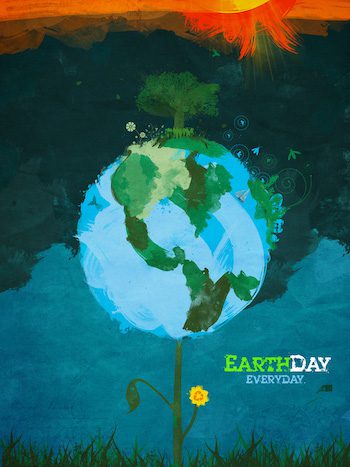


From the editor’s desk…
April 22 marks the 50th anniversary of Earth Day, an annual global event supporting the protection of the planetary environment. Four years ago, on Earth Day 2016, environmentalists and conservationists across the world cautiously celebrated as the landmark Paris Agreement—a global accord aimed at keeping the global temperature rise this century well below 2° Celsius above pre-industrial levels to avoid the worst impacts of climate change—was signed by some 120 nations, including the world’s two biggest polluters, the United States and China. But four years on, the prognosis is not good. In November 2019, a panel of climate scientists released a damning report, “The Truth Behind the Paris Agreement Climate Pledges,” in which they warned that the majority of the national pledges to reduce carbon emissions will not be achieved, with some of the biggest emitters even increasing their emissions.
And while the coronavirus pandemic has given Mother Nature a much-needed breath of fresh air due to sudden and steep declines in global-warming emissions caused by travel restrictions, reductions in public transport and overall economic activity (which I describe in a recent article in Yes! Magazine), there are fears that the COVID-19 crisis may put governmental attention to climate crisis on the back burner for months or even years to come. “It’s going to put a pause on anything climate-related,” said Glen Peters, research director at the Center for International Climate Research in Oslo. “In the policy discussions for the next 6-12 months, climate is probably not going to be mentioned, it is going to be about coronavirus and economic recovery.”
Absent governmental action, individual action must come to the forefront. As Earth | Food | Life contributor Monica Stanton argues in a recent article on NationofChange, individual lifestyle changes can be powerful tools to achieve the kind of grand transformation society needs to save the planet from ourselves. “When we take everyday steps to align our habits with our beliefs, we can be heroes, and we can take action with measurable impact,” writes Stanton (whose forthcoming book, “Earth Daze: Navigating Life in the Climate Age,” will be published by Stone Pier Press this fall). “Even our most basic daily, individual practices, such as cooking and eating, have incredible aggregate potential: according to the World Resources Institute, if the average person on Earth replaced just 30 percent of their red meat intake with plant-based options, we could achieve half the reductions in greenhouse gas emissions from agriculture necessary by 2050.”
On a planet crushed by human overpopulation—which is depleting finite natural resources and putting as many as one million plant and animal species at risk of extinction—we cannot afford to be careless about our personal consumer choices, a fact that the United Nations is addressing with ActNow, a global call to individual action on climate change. On this Earth Day, let’s take a moment to consider the beautiful Blue Marble that we share with so many other species who also call Earth home, and what we each can do to help sustain it for generations to come. And let’s try to remember, not just on Earth Day, but every day, that in our interconnected world, every decision matters.
Reynard Loki
Editor, Earth | Food | Life
Independent Media Institute
Take Action…
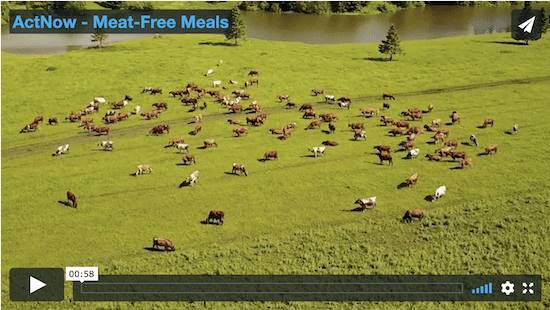
United Nations: ActNow is the United Nations’ global call to individual action on climate change. The campaign is a critical part of the UN’s coordinated effort to raise awareness, ambition, and action for climate change and accelerate implementation of the Paris Agreement. Primarily an online and social media campaign, ActNow will educate and encourage individual actions, mainly by adjusting consumption patterns. By changing our habits and routines, and making choices that have less harmful effects on the environment, we have the power to confront the climate challenge. The ActNow Climate Campaign aims to trigger individual action on the defining issue of our time, urging each and every one of us to make a difference in all facets of our lives, from the food we eat to the clothes we wear. This year, the campaign is focusing on two mini-campaigns around food and fashion.
>>>Take the ActNow challenge to make your food and fashion habits more supportive of the Paris Climate Agreement.
Center for Biological Diversity: On the 50th anniversary of Earth Day, we find ourselves almost back where it all began—fighting for laws that protect our public health, wildlife and the environment. Under cover of the COVID-19 pandemic, the EPA is no longer enforcing some of our nation’s critical environmental laws. A recent study from Harvard University shows that coronavirus patients in areas with high pollution levels are more likely to succumb to the disease. This makes it even more important to enforce laws like the Clean Air Act.
>>>Urge EPA Administrator Andrew Wheeler to do his job and hold polluters accountable.
University of Huddersfield: Some of the tiniest creatures on the planet are vital to their environment. But there is a worldwide fall in insect numbers and an accelerating rate of extinction. Now, a global group of 30 scientists is highlighting the issue and suggesting practical steps that everyone can take to help halt the decline. Insects make a vital contribution to the environment. “They provide food for other animals and they can also have a significant role in the functioning of freshwater ecosystems, forming a critical component in the diversity of life,” said Dr. Matt Hill, an aquatic environment expert and lecturer at the University of Huddersfield in West Yorkshire, England. But pollution and human impact on habitats mean that insects such as beetles, dragonflies and mayflies—plus other macro-invertebrates such as snails—are in long-term decline across the world.
>>>Support insect life by mowing lawns less often, avoiding pesticides and leaving old trees, stumps and dead leaves alone.
Earth Day picks…
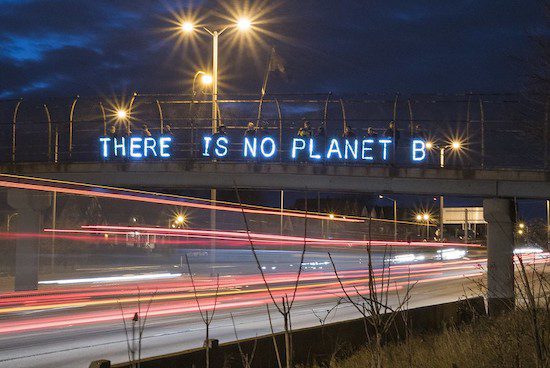
9 tips for reducing your impact by using what you have: “My family’s defining motto is ‘Siempre usa como lo que tienes’ (‘Always use what you have’),” writes Earth | Food | Life contributor Jazmine Velasquez, a news fellow at Stone Pier Press, in an article on EcoWatch. “To minimize my carbon footprint, I invest more of my money on sustainable shopping practices, like thrifting at second-hand clothing stores and packing my own meals in a lunch bag. I collect recipes that allow me to cook with overripe or wilted foods. The wilted kale in my crisper may not work in a salad, but it’s delicious in my favorite sweet potato hash.” [Click here to learn how to achieve a low-waste lifestyle.]
Kids can celebrate Earth Day with Woodsy Owl: For kid-friendly Earth Day activities, parents and teachers can celebrate with Woodsy Owl song sheets, sing-a-longs, coloring and activity pages and more, all available free at the U.S. Forest Service website. “Caring, friendly, and wise, Woodsy Owl is a whimsical fellow and he’s got his heart set on motivating kids to form healthy, lasting relationships with nature,” writes the U.S. Forest Service, which introduced the icon in 1971. “As Woodsy flies across our land, he encourages youngsters to marvel at and explore the natural world, even in the city. His motto ‘Lend a Hand – Care for the Land!’ encourages everyone to make a positive difference in their world.” [Click here for fun and free Earth Day resources for kids.]
Stylish, affordable bags made from recycled plastic: With Solo New York’s Re:cycled Collection, you can help plant trees and recycle plastic, all while sitting at home. Each bag in the collection is made from discarded plastic bottles that are transformed into high quality and lightweight recycled PET polyester yarn. The first run of the Re:cycled Collection alone recycled more than 90,000 plastic bottles. This environmentally-friendly process uses 50 percent less energy, 20 percent less water and causes 60 percent less air pollution than traditional fabrication methods. These eco-friendly bags help to prevent plastic bottles from entering landfills, and all tags, strings, and stuffing are made from 100-percent recycled and biodegradable materials. One of the biggest bag companies in the United States, Solo New York is a leader in sustainability, paving the way for other companies to follow: Its headquarters are completely powered by a rooftop solar array, and for each bag purchased, a tree is planted in partnership with the National Forest Foundation. [Click here to learn more about Solo New York’s Re:cycled Collection.]
Cause for concern…
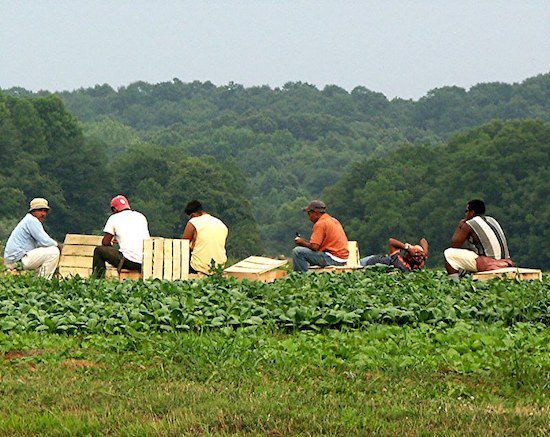
- How coronavirus threatens the seasonal farmworkers at the heart of the American food supply (Michael Haedicke, The Conversation)
- Animal viruses are jumping to humans: Forest loss makes it easier (Catrin Einhorn, The New York Times)
- Third environmental activist killed this year In Mexico (The Associated Press)
- Air pollution linked to dementia and cardiovascular disease (Karolinska Institutet, Neuroscience News)
- Eating fish is killing off 90% of this ocean’s dolphin population (Charlotte Pointing, LIVEKINDLY)
- Federal government failed to protect endangered whales from lobster fishing activities, judge rules (Patrick Whittle, The Associated Press)
- Lobster digestion of microplastics could further foul the food chain (American Chemical Society, Environmental News Network)
- Octopus farming: Another step towards an environmental catastrophe (International Organization for Animal Protection, Animal People Forum)
- Mississippi River flood management could cause another devastating Gulf Coast toxic algae bloom this year (Sarah Graddy, Environmental Working Group)
- Climate change may be making migration harder by shortening nightingales’ wings (American Ornithological Society)
Round of applause…
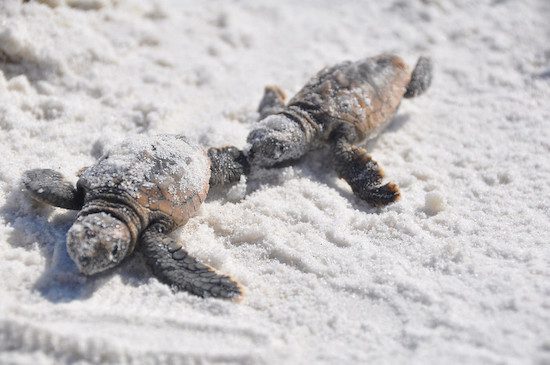
- As humans stay indoors, wild animals take back what was once theirs (Terrence McCoy, Washington Post)
- Indigenous knowledge could reveal ways to weather climate change on islands (A’ndrea Elyse Messer, Pennsylvania State University via Phys.org)
- Standing Rock Sioux tribe prevails as federal judge strikes down Dakota Access Pipeline permits (Earthjustice)
- Lawmakers to introduce bills to ban live animal markets, wildlife trade in California and New York (Anna Starostinetskaya, VegNews)
- Coronavirus lockdown could boost wild flowers (Roger Harrabin, BBC)
- Coyotes deserve our respect, not our fear (Kat Jercich, Tenderly)
- Kenya has banned the slaughter of donkeys for the vile ejiao trade (Dan H., PETA)
- Researchers use big data to identify biodiversity hotspots that could become the first generation of high seas marine protected areas (University of California – Santa Barbara, ScienceDaily)
- 3D-printed corals could improve bioenergy and help coral reefs (University of Cambridge, ScienceDaily)
- Local pig farmer transforms into vegan activist (PETA)
- 10 Tips: How to help your animal companions and others during the COVID-19 outbreak (In Defense of Animals)
Parting thought…
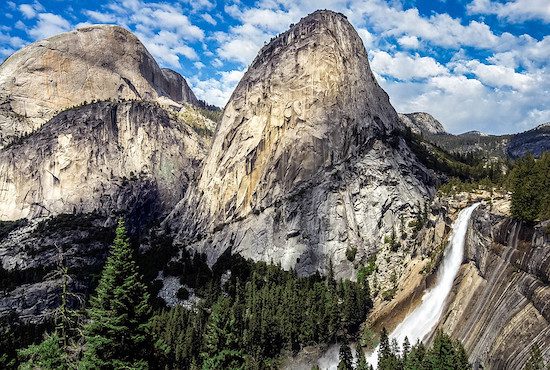
“When one tugs at a single thing in nature, he finds it attached to the rest of the world.” —John Muir
Earth | Food | Life (EFL) explores the critical and often interconnected issues facing the climate/environment, food/agriculture and nature/animal rights, and champions action; specifically, how responsible citizens, voters and consumers can help put society on an ethical path of sustainability that respects the rights of all species who call this planet home. EFL emphasizes the idea that everything is connected, so every decision matters.
Click here to support the work of EFL and the Independent Media Institute.
Questions, comments, suggestions, submissions? Contact EFL editor Reynard Loki at [email protected]. Follow EFL on Twitter @EarthFoodLife.